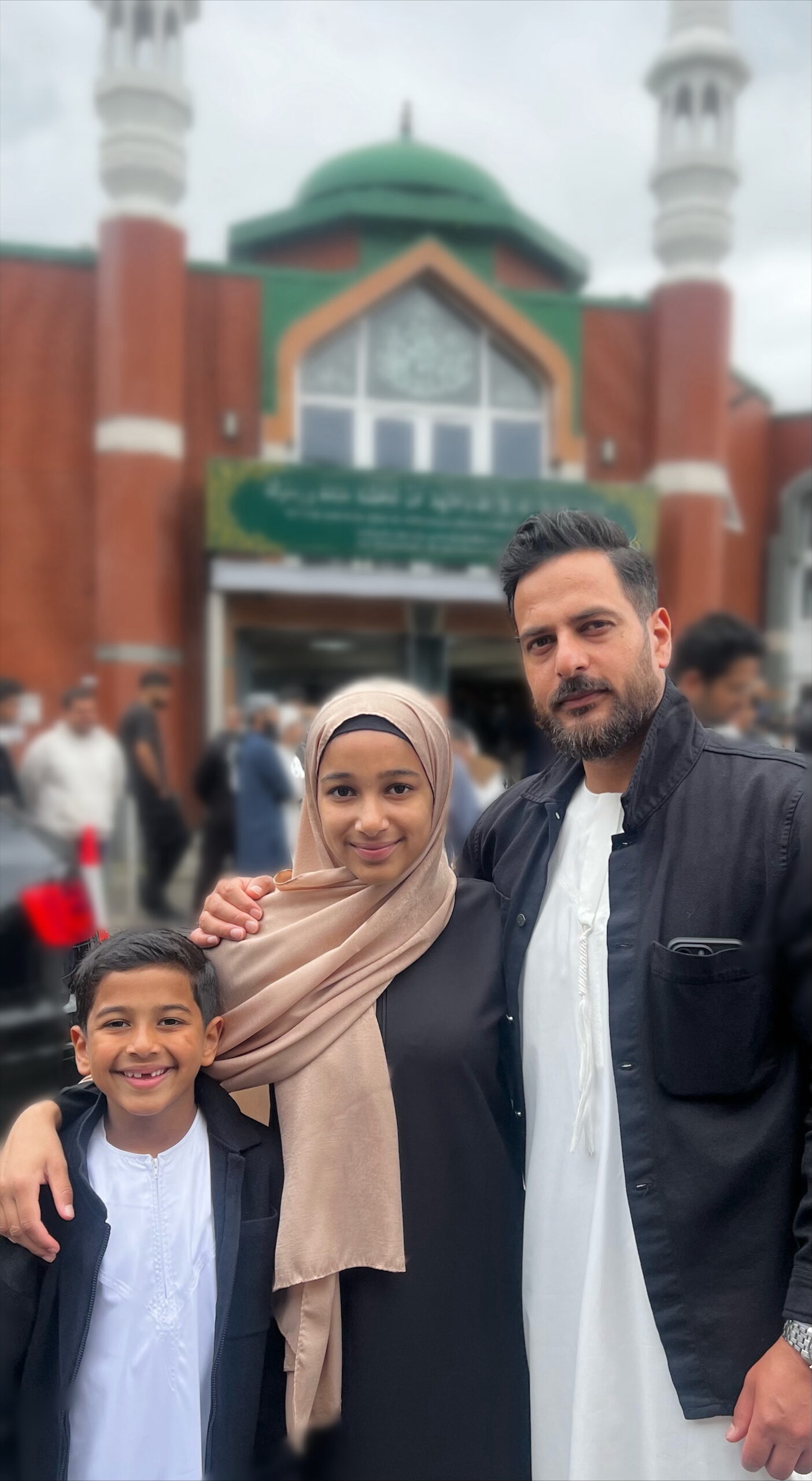A Day in My Life During Ramadan

Arshad Hussain shares his daily routine during Ramadan
At Avove, we celebrate diversity and inclusivity by creating an environment where education and understanding bring us closer together. Ramadan is a significant time for many of our colleagues, and learning about their experiences helps us build a culture of respect, empathy, and support. In this “Day in the Life During Ramadan” feature, Principal Business Improvement Manager, Arshad Hussain, shares his daily routine during this sacred month, offering insight into the balance between faith, work, and personal commitments. By embracing different perspectives, we strengthen our workplace community and ensure everyone feels valued and understood.

4.00am
Suhoor (pre-dawn meal)
My day begins before the sun rises. I start by performing ablution for cleansing before eating my Suhoor. I prefer to eat something light yet nutritious and hydrating – usually plain yogurt, dates, bananas and water. Eating with my family provides a sense of unity and focus as we get ready for the upcoming fast.
5.00am
Fajr (morning prayer)
Following Suhoor, I complete the Fajr prayer as the day’s first religious obligation. I endeavour to go to the mosque for this, but since I must travel a little to get to the nearest mosque, this is not always possible. The Fajr prayer serves as both an opportunity for silent contemplation and a reminder of Ramadan’s spiritual intentions.
6.00am
After Suhoor, I may choose to read, take a brief nap or go for a walk, depending on how I feel before beginning my workday.
8.00am
Starting the workday
When I log into work, I prioritise completing high-priority tasks during the morning because that’s when my energy levels are highest. I plan my work during Ramadan by allocating meetings and demanding tasks to this time of day.
Some people prefer starting work and meetings later in the day, as they may have spent more time in community and worship the night before.
11.00am
Staying productive and focused
I enter the flow of work by late morning. I concentrate my efforts on tasks that demand both high levels of concentration and creative thinking. I sustain productivity by dividing my tasks into smaller segments, which prevents burnout.
1.00pm
Zuhr (midday prayer) and midday break
During my midday break, I perform Zuhr, which is the midday prayer. You get to step away from your screen to stretch your body and refresh your mind. These prayer breaks rejuvenate me both spiritually and physically, especially as afternoons can be challenging as I often feel a bit of fatigue at this time.
2.00pm
Afternoon meetings and collaboration
My ideal afternoon routine includes holding meetings while engaging in team projects. I maintain open communication with my colleagues about my timetable when my energy starts to decrease. My team’s support during Ramadan proves to be incredibly beneficial.
3.00pm
Most of my colleagues make a joke about my automated “school run” announcement at 2:55pm, so I am expecting that to continue in Ramadan as well. The school run offers me another opportunity to take a break and get some fresh air. By this time, Janat, my wife, is generally running on fumes while I’m still going strong!
4.00pm
I perform the Asr afternoon prayer while beginning to conclude my work at 16:30pm.
5.00pm
After work, I dedicate some time in the kitchen to help Janat prepare Iftar, the meal to break our fast.
Preparing for Iftar requires setting up the food and ensuring everything is ready for the moment we break our fast. The anticipation builds as the sun sets.
6.00pm
Maghrib (evening prayer) and Iftar (breaking fast)
When the call to prayer (Adhan) signals sunset, we break our fast with a date and a sip of water/milk.
After the Maghrib prayer, we endeavour to have a balanced meal, keeping it light to avoid feeling sluggish. Ramadan teaches us moderation, even in eating.

7.00pm
Family time and relaxation
In the time following Iftar, my family and I spend moments together to catch up and enjoy a peaceful evening. This isn’t always possible for me, though, with the kids’ sports, etc.
8.30pm
Isha and Taraweeh (night prayers)
Taraweeh prayers, which are additional prayers, are held after the Isha night prayer during Ramadan. These prayers are longer and can take up to an hour (mostly standing), so it’s paramount to not overeat at Iftar! This prayer provides a peaceful conclusion to my day.
10.30pm
Winding down
I begin my bedtime routine to ensure I receive sufficient rest for tomorrow’s early morning schedule, knowing the early wake-up call is just a few hours away (Insha-Allah/God willing).
Reflection
Fasting during Ramadan is only one part of the month, as it’s also a time to build spiritual awareness, develop piety, and grow in compassion and patience. Colleagues who show support and understanding during this period make it possible for me to manage my work duties alongside my spiritual activities, like reciting and reflecting on the Quran after each Salah (prayer).
A little curiosity goes a long way
Ben Hawkins, Head of Strategic Projects, talked about how he supports others:
You might have seen the Ted Lasso clip where he gives an anecdote about “being curious” and I think that encapsulates my approach best. I like to ask questions and learn, and I take a lot from the conversations Arshad and I have throughout Ramadan. I like to think that this approach creates an environment where people can be themselves and be at their best.